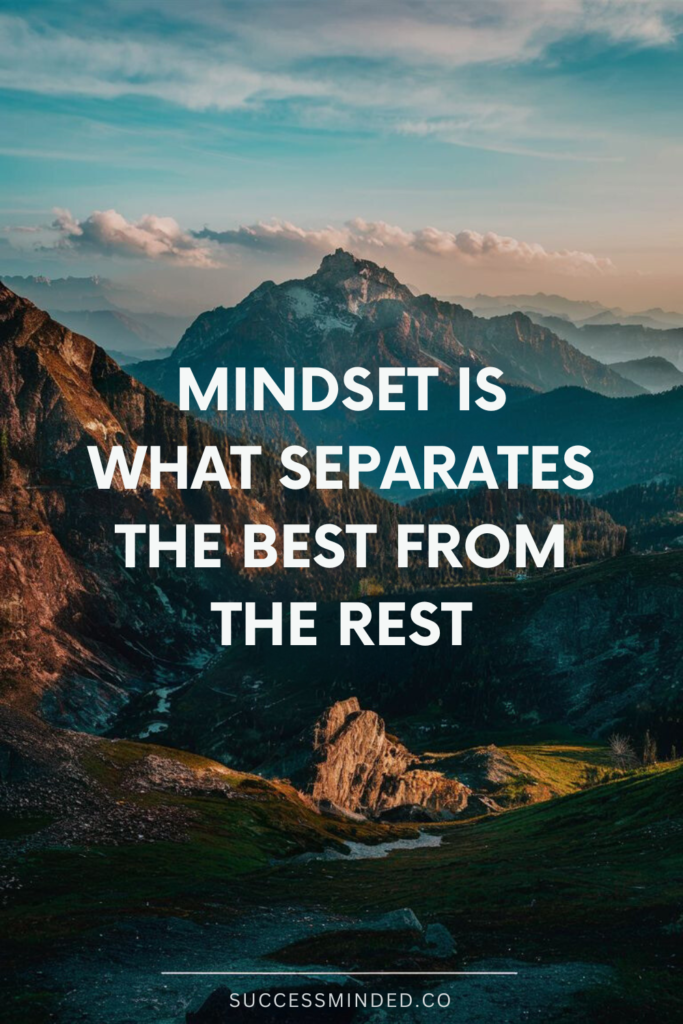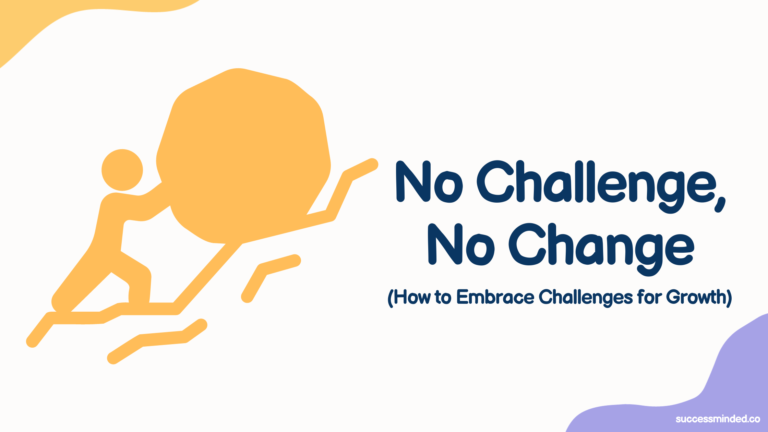Have you ever wondered why some people seem to effortlessly achieve their goals while others struggle endlessly? It’s not just luck or talent that sets them apart. The real difference lies in their mindset. As the saying goes, “mindset is what separates the best from the rest.”
At its core, this saying highlights the power of our thoughts and beliefs in shaping our reality. Those with a winning mindset approach challenges with a can-do attitude, while those with a fixed mindset often get stuck in self-doubt and excuses. It’s the lens through which we view the world, and it can either propel us forward or hold us back.

Meaning of the Saying, “Mindset is what separates the best from the rest.”
Let’s start by breaking down the meaning of “mindset.” It’s not just a buzzword; it’s the foundation of our thoughts, beliefs, and attitudes. Our mindset is like a mental filter that shapes how we interpret and respond to situations. It’s the internal dialogue that either motivates us or undermines our efforts.
Successful people tend to have a growth mindset. They believe that their abilities and intelligence can be developed through hard work and dedication. They embrace challenges as opportunities to learn and grow. In contrast, those with a fixed mindset believe that their talents and intelligence are set in stone. They view challenges as threats and tend to avoid them.
The good news is that mindset is not set in stone. It’s a choice we make every day, and we have the power to cultivate a mindset that serves us well.
Why Does It Always Boil Down to Mindset?
So, why is mindset so crucial? It all comes down to the way we think and the beliefs we hold. Our thoughts and beliefs shape our emotions, which in turn influence our actions and, ultimately, our results.
People with a positive, growth-oriented mindset tend to have an internal dialogue that’s supportive and encouraging. They see setbacks as temporary and view failures as opportunities to learn and improve. This resilient mindset allows them to persist in the face of adversity and bounce back from challenges.
On the other hand, those with a negative, fixed mindset often engage in self-defeating thought patterns. They catastrophize situations, doubt their abilities, and make excuses for their shortcomings. This limiting mindset can become a self-fulfilling prophecy, leading to more failures and missed opportunities.
Numerous studies have shown that individuals with a growth mindset achieve greater success in various domains, from academics to sports to business. Their willingness to embrace challenges, learn from mistakes, and persevere in the face of obstacles sets them apart.

How Do the Masses (The Rest) Really Think?
While a growth mindset is crucial for success, the unfortunate reality is that many people operate from a fixed mindset – the kind of thinking that holds them back from reaching their full potential.
For the masses, negative self-talk and limiting beliefs are all too common. Phrases like “I’m not good enough,” “I’ll never be able to do that,” or “It’s just too hard” become self-imposed barriers. They get caught in the trap of making excuses instead of taking responsibility for their growth.
The masses also tend to have an external locus of control, blaming their circumstances, other people, or sheer luck for their failures rather than looking inward. “If only I had more money,” “My boss doesn’t appreciate me,” or “I just don’t have the same opportunities” are familiar refrains.
In contrast, those with a success mindset understand that they are the architects of their own lives. They take full ownership of their choices, efforts, and outcomes – both good and bad. This internal locus of control empowers them to create the changes they want to see.
Cultivating a Success Mindset
Developing a growth-oriented, success mindset doesn’t happen overnight. It requires conscious effort, self-awareness, and a willingness to challenge deeply ingrained thought patterns. But the good news is it’s a skill that can be learned and honed over time.
One of the most powerful steps is to become aware of your self-talk. Notice the voice in your head – is it supportive or critical? When you catch yourself engaging in negative self-talk, consciously reframe those thoughts into more constructive ones.
Another key strategy is to embrace a beginner’s mindset – an attitude of curiosity, humility, and willingness to learn. Approach new challenges as opportunities to grow, not situations to be feared or avoided.
Surrounding yourself with positive influences can also reinforce a successful mindset. Seek out inspiring books, podcasts, or mentors who embody the kind of thinking you want to cultivate. Let their mindsets rub off on you.
Conclusion
At the end of the day, mindset is what separates those who live up to their potential from those who settle for less. As the late great Zig Ziglar said, “It’s your attitude, not your aptitude, that determines your altitude.”
Developing a growth mindset won’t happen by accident. It takes conscious effort and a commitment to personal growth. But the payoff is immense – a life of greater fulfillment, resilience, and achievement.
So, are you ready to cultivate the mindset that will propel you to new heights? The choice is yours. Embrace a success mindset today, and watch as new possibilities unfold before you.



